Post by Veronika Carranza, undergraduate in Psychology pursuing an Interdisciplinary Neuroscience minor at Portland State University.

Why is music so timeless?
Why do people still listen to music thought up by a child more than 200 years ago?
Why do we learn the letters of the alphabet through song? Why are some parents so adamant in forcing their children to learn piano even when the child insists their interests lie elsewhere? Why does a movie scene strike the heart so much deeper when the background is filled with the despairing notes of a violin? Why did Celtic warriors insist on lugging around a carnyx horn to be played before battle? Why do churches specifically set time aside for singing worship songs? What does a musician mean when they call someone else their muse?
LEARN MORE: Prodigies of nature
LEARN MORE: The Carnyx: Music on the Iron Age Battlefield
Music is our great instructor.
It teaches us that the emotions we feel during a tragic scene in a movie are more than okay to feel. Our emotions are amplified by the sad music and we are less resistant to feeling them and letting the tears fall. Music liberates our brain to think creatively. It aids in the development of our memory and social skills. When we are alone and feeling passionless, the right song can excite us to action and pull us from our apathetic state of mind. Activities associated with music result in the formation of fresh neural connections and improve the speech and reading development of young minds.
Music affirms that the emotions we endure are not just felt by us alone. When we listen to music we become more self-aware and socially conscious of others at the same time.

LEARN MORE: The Magic of Music
LEARN MORE: Musical Creativity and the Brain
LEARN MORE: The psychological functions of music listening
LEARN MORE: Music Making as a Tool for Promoting Brain Plasticity across the Life Span
LEARN MORE: Music facilitates the neurogenesis, regeneration and repair of neurons
LEARN MORE: The Neurophysiological Processing of Music in Children
LEARN MORE: The Impact of Music on Human Development and Well-Being
What is emotional intelligence?

You may have heard this phrase thrown around on the internet in circles where psychology and mental health are discussed, but what does the term “emotional intelligence” actually mean?
Emotional intelligence is the ability to process, understand, and communicate your own feelings. It is also the ability to accurately interpret someone else’s feelings.
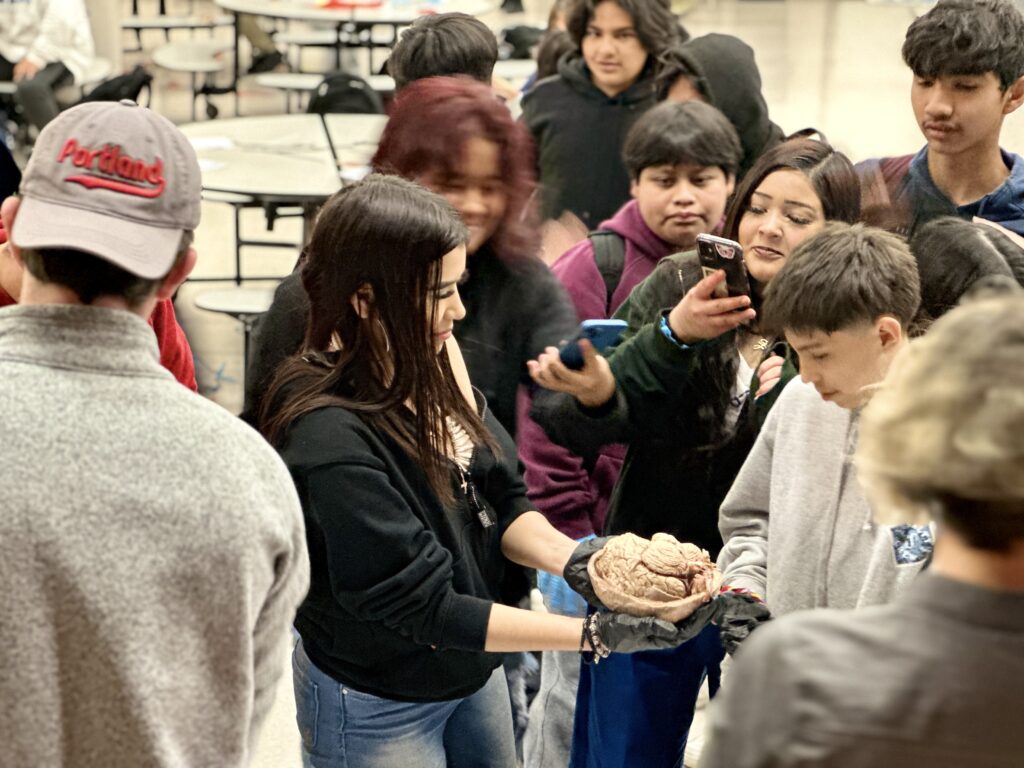
“Anybody can become angry – that is easy, but to be angry with the right person and to the right degree and at the right time and for the right purpose, and in the right way – that is not within everybody’s power and is not easy.”
— Aristotle
Emotional intelligence, like other types of intelligence, requires one to obtain knowledge and experience and then apply what is learned to practice. It is something that takes a considerable amount of effort and surveillance to constantly exercise and keep oneself up to date on.
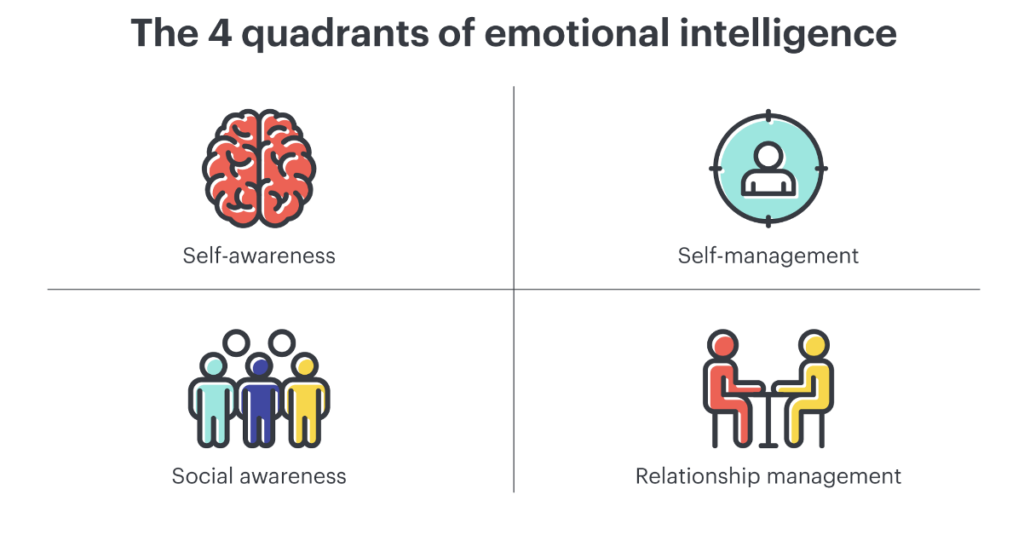
LEARN MORE: A New Layered Model on Emotional Intelligence
LEARN MORE: Emotional Intelligence Measures: A Systematic Review
Music improves behavioral measures of emotional intelligence.
Children ranging from ages 4 to 5 were found to score higher when measured for empathy and extraversion, and they scored higher on their level of communication if they started group music lessons under the age of 1 years old versus those who started a few months later. This suggests that teaching even the youngest of minds about the art of music while amongst peers, acts to socialize them in a way that would make them more successful in their current and future relationships.
LEARN MORE: How musical training affects cognitive development: rhythm, reward and other modulating variables
So if you grew up without even one person teaching you the importance of identifying your emotional state and what to do about it, music might be able to help.
LEARN MORE: Levels of Emotional Awareness: Theory and Measurement of a Socio-Emotional Skill
LEARN MORE: Higher emotional awareness is associated with greater domain-general reflective tendencies
LEARN MORE: Emotional Wellness Toolkit (NIH)
With over 1,000 different subgenres of music, every possible experience has been written into the chorus of a song. Potentially every feeling and sensation, every difficult thought and conviction, every belief and teaching is all there in the music.

“Music doesn’t get in. Music is already in. Music simply uncovers what is there, makes you feel emotions that you didn’t necessarily know you had inside you, and runs around waking them all up. A rebirth of sorts.”
— Matt Haig
The reason for listening to slower and sadder songs when we already feel unhappy is that sad songs make us feel both sorrowful and joyful at the same time. These two emotional states persist in waves throughout the song without canceling each other out and the listener is left with a feeling that is bittersweet. Songs that could be described as depressing were also found to relieve pain!

LEARN MORE: Sad Music Modulates Pain Perception: An EEG Study
LEARN MORE: Sadness and happiness are amplified in solitary listening to music
LEARN MORE: Sad music induces pleasant emotion
Music and mental health
Music is also applied in clinical settings to study its impact on mental health.

“Music has healing power. It has the ability to take people out of themselves for a few hours.”
― Elton John
In one study, patients diagnosed with major depressive disorder (MDD) mostly preferred sad songs over happy ones. Patients with a sad song preference said that they felt calmed by the steady and unhurried tempo of the sadder songs. Their reported happiness increased while listening to sad songs, and their irritation decreased. Several additional studies find a beneficial therapeutic impact of music on major depression and other disorders of mental health.
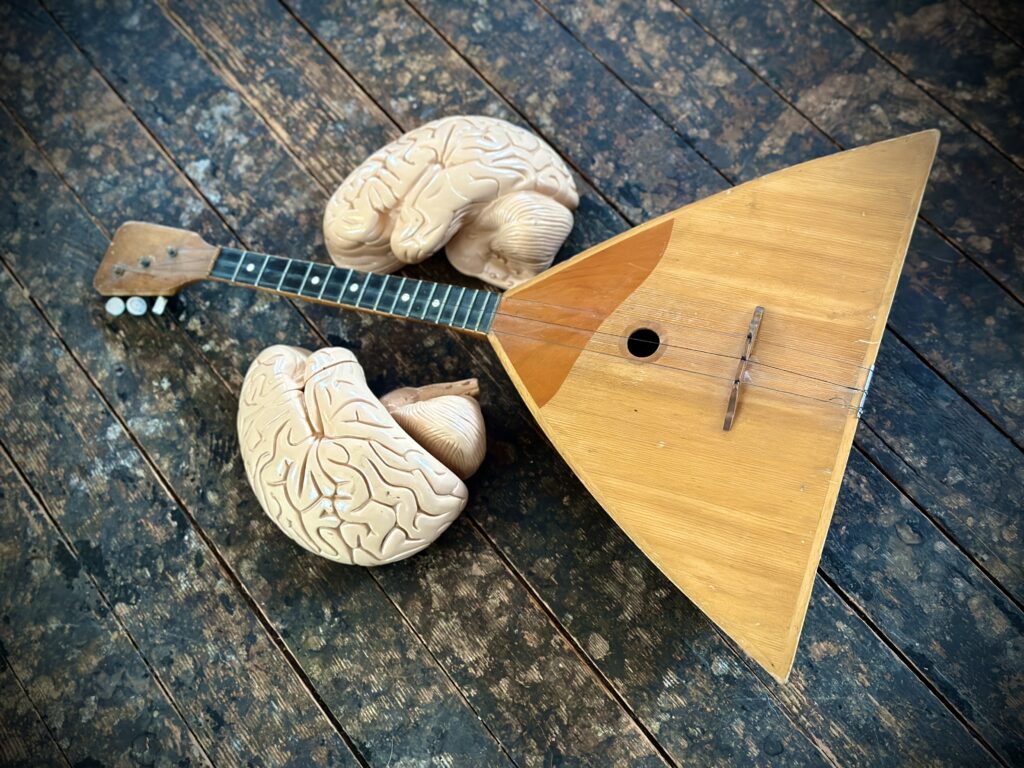
“Music can lift us out of depression or move us to tears – it is a remedy, a tonic, orange juice for the ear. But for many of my neurological patients, music is even more – it can provide access, even when no medication can, to movement, to speech, to life. For them, music is not a luxury, but a necessity.”
― Oliver Sacks
LEARN MORE: Why do depressed people prefer sad music?
LEARN MORE: Major Depression (NIMH)
LEARN MORE: Effects of music therapy on depression
LEARN MORE: Music therapy for depression
LEARN MORE: Effects of music therapy on major depressive disorder
LEARN MORE: Altered Functional Connectivity and Complexity in Major Depressive Disorder after Musical Stimulation
LEARN MORE: Music and neuro-cognitive deficits in depression
LEARN MORE: The Effect of Music on the Human Stress Response
It is clear that music has a powerful healing quality that can be applied to disordered mental states. But there is another side of this coin.

Surrounding yourself with others who are also in a sad state while amplifying this environment with music can lead to the magnification of negative emotions in the form of group rumination. In other words, the music and company you engage with influence your mental state, and in turn your mental state influences them back, in a positive feedback loop. Knowing this, we should take care to treat music as the potent medium that it is. The good news is that this also works in the same way if we listen to music that is positive while surrounding ourselves with others in a happier state of mind.
LEARN MORE: The pleasures of sad music: a systematic review
LEARN MORE: Music evokes vicarious emotions in listeners
More benefits of music
Beyond its ability to improve emotional intelligence and mental health, music and music training allow children to improve their vocal memory, their second language skills and their reading level!
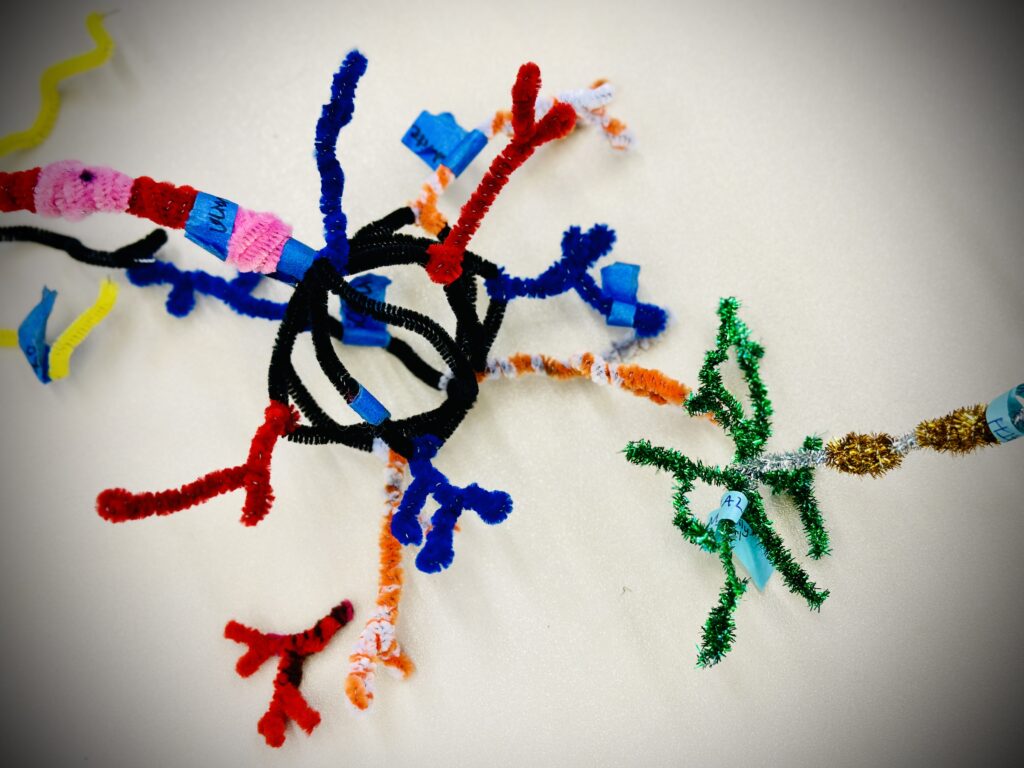
Clearly music (and art!) should be central to an effective public K-12 education.
LEARN MORE: How musical training affects cognitive development: rhythm, reward and other modulating variables
LEARN MORE: Effects of music training in executive function performance in children
LEARN MORE: Multimodal music training enhances executive functions in children
LEARN MORE: Short-term Second Language and Music Training Induces Lasting Functional Brain Changes in Early Childhood
LEARN MORE: Music playschool enhances children’s linguistic skills
Music and the Brain
“Music can activate almost all brain regions and networks, it can help to keep a myriad of brain pathways and networks strong, including those networks that are involved in well-being, learning, cognitive function, quality of life, and happiness…”
— Andrew E. Budson
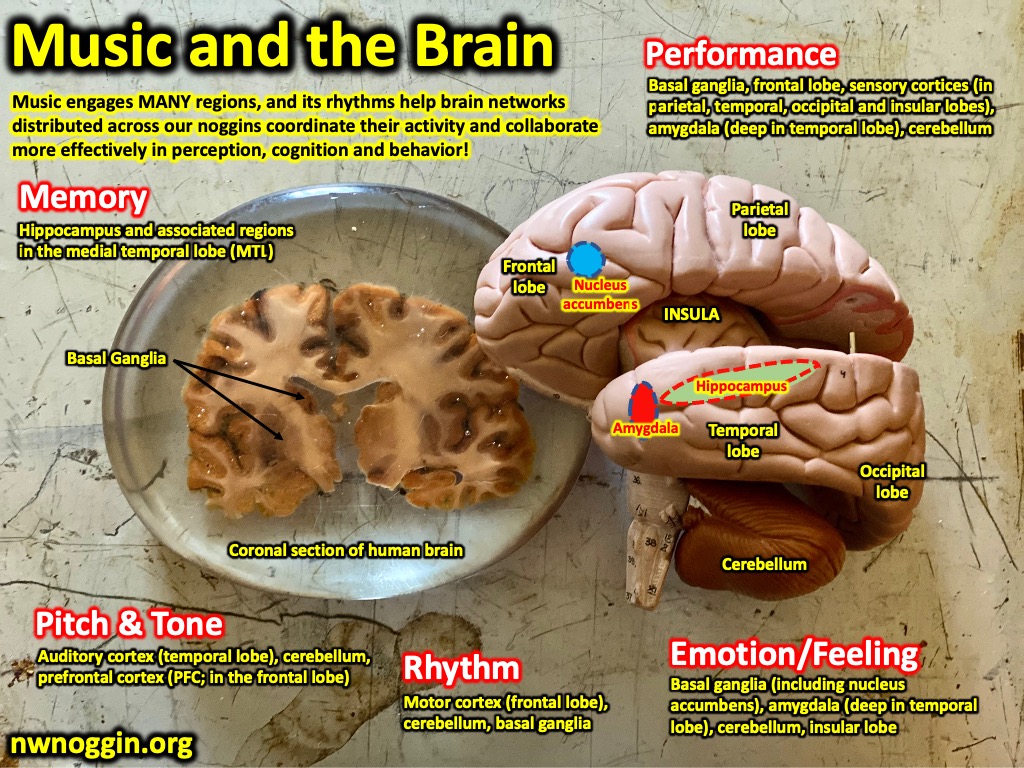
LEARN MORE: The Magic of Music
Whether a child is just listening to music, singing or learning to play an instrument, regardless of genre, their emotional intelligence can swell. Starting in infancy and continuing into adulthood, music has been shown to heighten emotional sensitivity, improve motor skills and coordination, self-esteem, and very importantly, socialization.
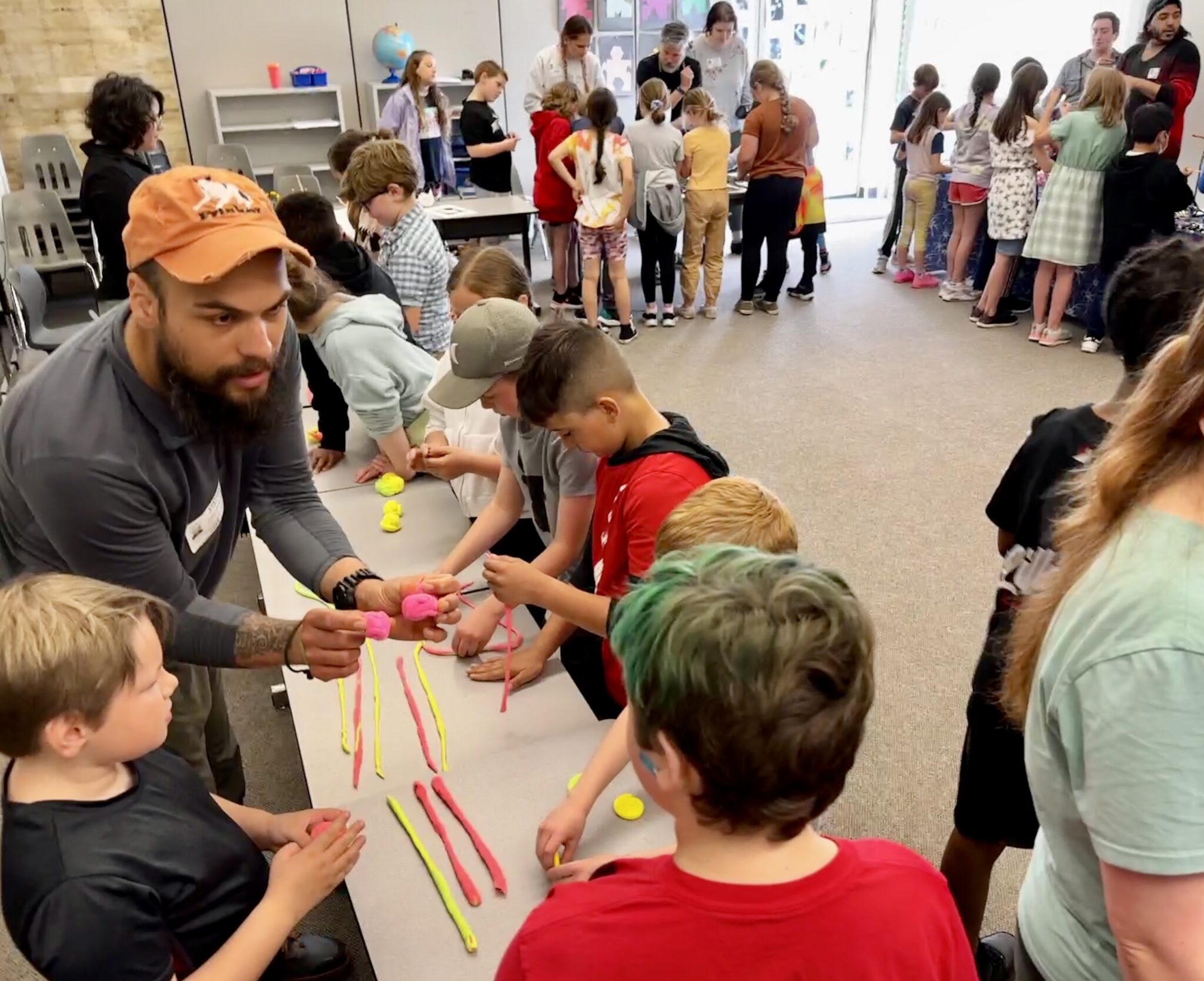
Music has been present for longer than most things around us. Before cars and TVs, and even perhaps before the very first spoken word, there was a rhythm. The timelessness of music is a wonder and has much to teach us.
We should also remember that development is a lifelong process. College students majoring in music education were tested for emotional intelligence before and after attending a “teaching music” class for a single semester. There was clear and significant improvement, revealing that we can continue to enhance our brain’s abilities throughout our lives.
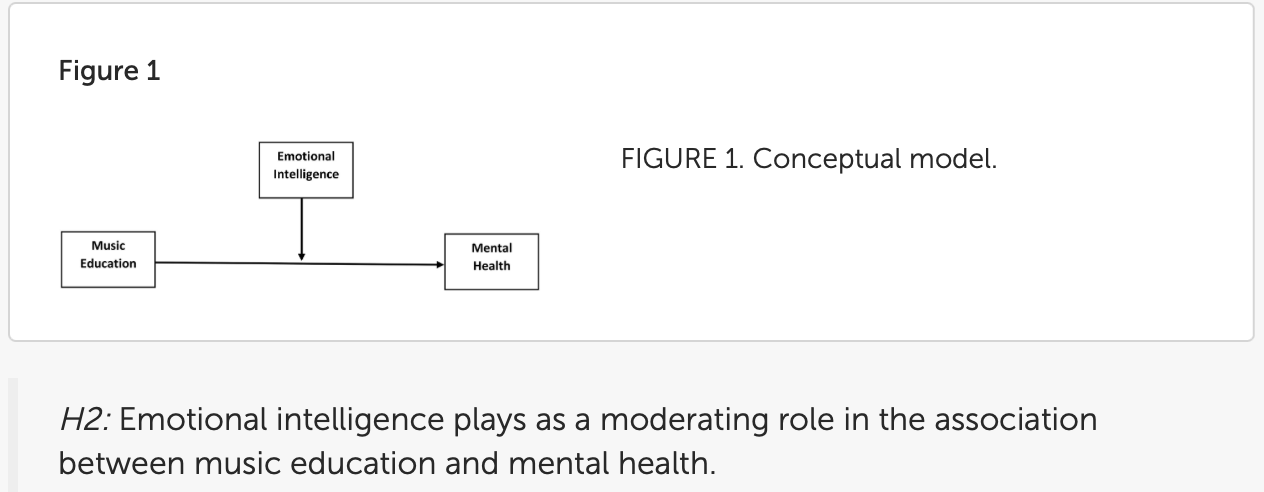
LEARN MORE: Impact of Music Education on Mental Health of Higher Education Students
We can keep expanding our emotional intelligence with the help of our melodious companion.
LEARN MORE: Music and Health: What You Need To Know
LEARN MORE: Music, mental health, and immunity
Music and outreach

During my very first outreach visit to Oregon City high school, as I exited the classroom for a bathroom break, I noticed two female students sitting right outside sharing one headphone set between the two of them. I asked them if they wanted to come in and see the brains that us college students had brought and maybe make some neurons out of pipe cleaners.

“No, brains really freak me out,” said one of the girls. “Oh, well you don’t have to look at the brains, I could go with you to the back of the room and we could make neuron models,” I said. “No thank you, I can already feel myself freaking out from here, my heart is beating really fast already, so I’m good out here,” she said. I tried to comfort her a bit more until I realized that pushing someone out of their comfort zone might not alleviate their fear.
She was already listening to music to calm herself down. I use music for the very same reason every single day, to the point that I feel incomplete without music in my ears.
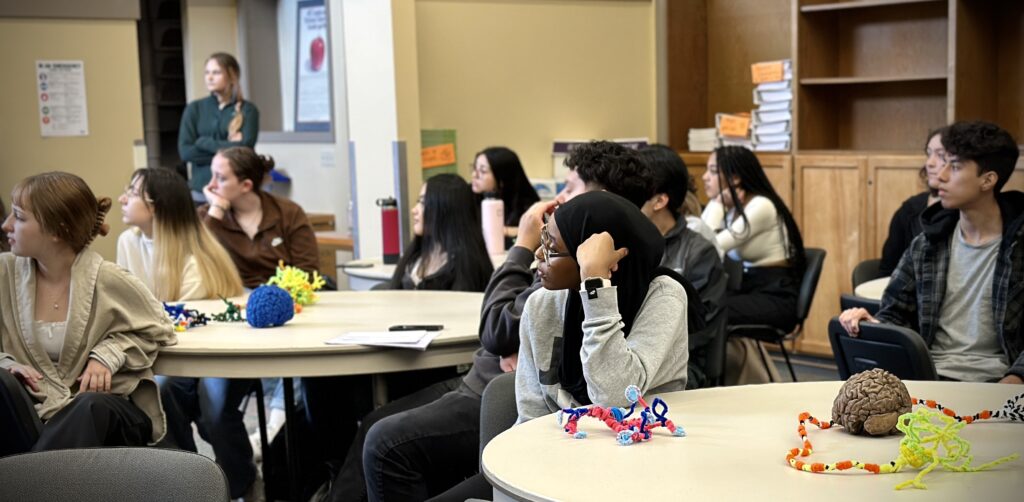
So my idea for this topic came from a short conversation with some of the first high schoolers I have talked with in years and my recognition that I could relate to them in such a meaningful way.
High school in general can be very isolating and unpredictable to the point that students might feel like no one understands their feelings, anxieties or concerns. They may even imagine that this feeling will last forever and they envision themselves always carrying their insecurities along with them.
I felt the same way too. I believe many of us did.
A key to surviving and growing past this tumultuous stage in all our lives is to find something that soothes and relieves our distress and the negative thoughts we may dwell on. Music got me through my childhood and adolescence in more ways than one.

LEARN MORE: Music Listening for Supporting Adolescents’ Sense of Agency in Daily Life
The positive impact that music had on my own emotional intelligence, memory retention, success and sociability cannot be understated and given the growing research evidence, I believe that it can offer the same benefits for others too.


